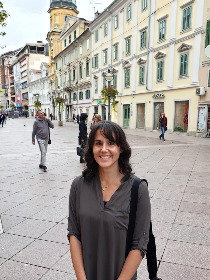M. (Maja) Graso, Dr

Research interests
I research what influences people’s perceptions of visible and invisible harms in their social environments. Unlike the more visible threats that can unify and inspire immediate, coordinated action (e.g., a fire threatening a community), invisible harms often trigger divisions due to their ambiguity and differences in people’s perceptions, interpretations, and proposed solutions.
I am interested in how people perceive such harms they cannot see and how they seek to resolve them. For instance, if there are vast differences in perceptions of what is harmful, whose reality should guide social norms, and how should organizations respond? Which well-meaning efforts to resolve them only lead to short-term safety at the expense of long-term peace?
My colleagues and I have been exploring the implications of these questions for contexts ranging from allegations of non-physical mistreatment at work to Covid-19, and we are always interested in engaging with people with different views on these topics.
Before joining Groningen, I spent six years at the University of Otago in majestic New Zealand and five years at a young teaching-focused school in Abu Dhabi (Zayed U, UAE), where I got to understand the full meaning of Arab hospitality. Originally from Croatia, I also spent time in the Netherlands Antilles, and I worked and studied in the USA (Washington State University).
